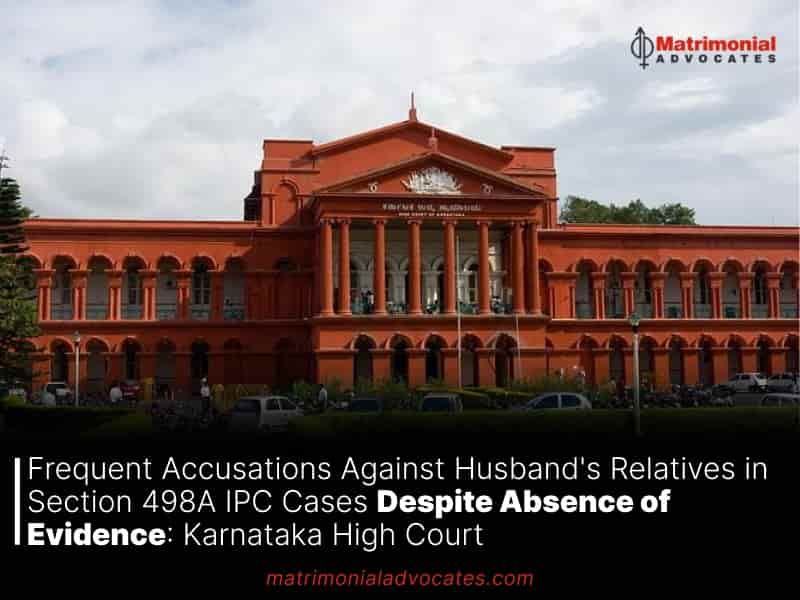
The Court made the observation while quashing proceedings against eight relatives of a man. However, the Court upheld proceedings against the man and his mother.
The Karnataka High Court has stated that relatives of husbands are often embroiled in cases of cruelty towards wives under Section 498A of the Indian Penal Code (IPC), despite the lack of evidence against them. Justice CM Joshi, emphasizing concerns regarding the misuse of Section 498A, highlighted that minor disagreements between couples were leading to legal actions.
“It is pertinent to note that the provisions of Section 498 of IPC are quite often misused and minor differences between the couple are being brought to the Court unnecessarily by roping in all the family members of the husband, who are staying elsewhere than the place of stay of the couple. In fact, there would not be any evidence to show that the relatives of the husband had also a role in the alleged dispute between the husband and wife,” the Court said.
The court recognized that differences between the couple might arise from diverse factors, but they are frequently distorted to fit within the framework of Section 498A.
These remarks were issued as the court dismissed charges against eight relatives of a man accused under Section 498A for mistreating the man’s wife.
Nevertheless, the court upheld the charges against the man and his mother.
After scrutinizing the woman’s complaint, the court observed that the principal accusations were aimed at the husband and his mother.
Regarding others, the court noted their minimal involvement, as they didn’t reside in Mumbai, where the couple lived.
“Therefore, the involvement of accused Nos. 3 to 10 in the alleged harassment meted out to the complainant is not forthcoming either from the FIR or from the investigation papers. Such involvement of accused Nos. 3 to 10 is only in the form of omnibus allegations against them and specific details of their harassment is not narrated,” said the Court.
Considering this fact, the Court partially accepted the petition by dismissing the proceedings against the accused parties, except for the woman’s husband and her mother-in-law.
“Petitioner Nos. 1 and 2/accused Nos. 1 and 2 shall face the trial before the trial Court,” ordered the Court.





